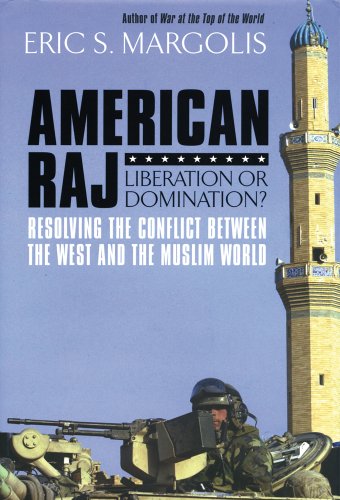Last week’s massacre in Paris was not, as almost every writer mistakenly claimed, the worst atrocity in the City Of Light since World War II.
As the renowned Mideast expert Robert Fisk quickly pointed out, an even worse atrocity occurred in Paris 54 years ago, on 17 October, 1961.
Paris chief Maurice Papon, a former Vichy official, who had sent over 1,000 Jews to their deaths during the war, unleashed his brutal riot squads on 30,000 Arab demonstrators calling for the independence of Algeria from French colonial rule. In an orgy of killing, some 200 Algerians were killed. Many were beaten senseless, then thrown from the Pont St. Michel bridge into the Seine River. 11,000 Algerians were arrested and cast into internment camps or a sports stadium.
 American Raj Liberatio...
Buy New $4.99
(as of 06:10 UTC - Details)
American Raj Liberatio...
Buy New $4.99
(as of 06:10 UTC - Details)
I was in Paris when this mass killing occurred. Six months later, I was again visiting Paris when four retired French generals tried to stage a coup d’etat against the government of President Charles de Gaulle and Prime Minister Michel Debré which planned to grant Algeria independence after 132 years of French colonial rule.
French voters had backed the independence plan after a long, bloody uprising by Algerians in which one million people may have died. But France’s professional military caste and non-Arab settlers in Algeria, know as “pieds noires,” who were mostly of Spanish, Portuguese and Jewish origin were violently opposed. They plotted to overthrow or kill De Gaulle and keep Algeria French – as retold in the superb book and film, “Day of the Jackal. ”
On 21 April, 1962, army plotters called on Algeria-based elite French paratroop regiments and the Foreign Legion to fly to France, and seize the airport around Paris. The rebels were then to drive into Paris, arrest senior government officials, including De Gaulle, and impose a military regime.
22 April was one of the most exciting days I’ve seen. Aside from demonstrations by left-wing unions, Paris was deserted. Streets were empty; stores were closed. The City of Light had grown dark.
The sound of hundreds of military and police radios crackling filled the air. Side streets off Place de la Concorde were filled by vehicles carrying tough, heavily armed CRS paramilitary police and soldiers from the regular army who had not sided with the mutineers.
 War at the Top of the ...
Buy New $4.99
(as of 06:10 UTC - Details)
War at the Top of the ...
Buy New $4.99
(as of 06:10 UTC - Details)
Tension was hair-trigger high. Fighting could begin any moment. We scanned the skies for the arriving troop transports bringing in General Jacques Massu’s paras and the Legion from Algiers.
France was poised on the very brink of civil war. The government urged its citizens to rush to the airports and plead with the paras and Legion not to march on Paris. My father’s friend, the legendary American humorist Art Buchwald, told us he too was prepared to rush to Orly Airport but “I can’t speak German!” Meaning – that most of the Legion were former German soldiers or Waffen SS from WWII.
 French conscripts of the Army of the Rhine refused to join the uprising and arrested members of the Algiers coup, proving once again that professional armies threaten democratic governments. The French air force commander refused to provide transport aircraft for the army in Algeria, stranding them in North Africa.
French conscripts of the Army of the Rhine refused to join the uprising and arrested members of the Algiers coup, proving once again that professional armies threaten democratic governments. The French air force commander refused to provide transport aircraft for the army in Algeria, stranding them in North Africa.
Interestingly, a similar refusal to provide transport aircraft to the Communist die-hards who tried to overthrow Mikhail Gorbachev in 1991 caused the Soviet coup to collapse. By contrast, General Francisco Franco was able to get planes to fly Moroccan troops from North Africa to Spain, thus beginning his war to overthrow the Republican/Leftist government in Madrid.
France’s long colonial rule in Algeria, Tunisia and Morocco, as well as most of West Africa, brought larger numbers of menial African workers to France. So, too, “harkis,” former soldiers in France’s Algerian Army. Their offspring form today’s underclass in France: poor, living in ghettos, victims of racism and bigotry against Muslims, unable to find work, steeped in petty crime and filled by sense of bitter hopelessness.
The Algerian War fought over 50 years ago has been forgotten in the West. But not by Europe’s or North Africa’s Muslims. Nor its sequel, Algeria’s gruesome civil war in the 1990 that killed hundreds of thousands. Back then, I warned it would one day spill over into Europe.




